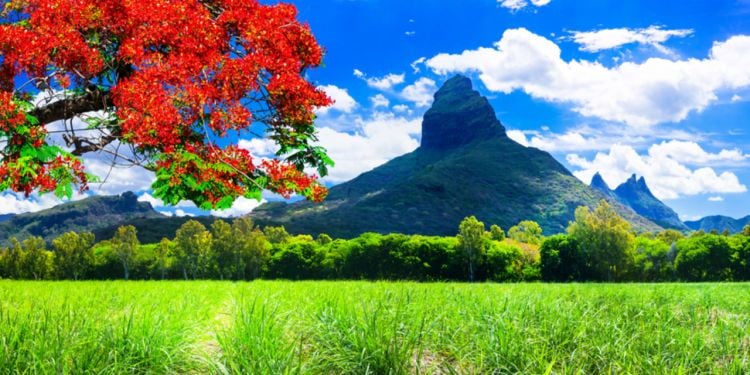Climate in Mauritius

If you're planning a move to Mauritius, you're probably wondering what the climate looks like. How many seasons are there? Should you move during the warmer or cooler season? Find the answers to your questions in this article.
Mauritius enjoys a subtropical climate with temperatures ranging from 25 to 35°C with regular trade winds from the Southeast. Temperatures are higher during the wet season from November to April (summer in the Southern hemisphere) and cooler during the dry season from May to October, that is, in winter.
Seasons in Mauritius
In summer, temperatures easily reach 30°C. However, these temperatures remain bearable, thanks to a light sea breeze in the West and a stronger wind on the East coast. The central plateau is, in general, cooler. The diurnal amplitude in summer is 14 hours, with sunrise between 5:00 and 5:45 am and sunset between 7:00 and 7:15 pm. The heat accumulated during the day remains present at night.
In winter, however, the temperatures between day and night can be very different. On a sunny day, temperatures can vary from 22 to 27°C. On the other hand, as soon as the sun sets, temperatures drop rapidly to 19°C near the coasts and 16°C on the central plateau. The days are shorter, generally lasting 11 to 12 hours. In the middle of winter, the sun rises at around 6:30 am and sets around 6 pm. There is little rainfall in the coastal regions. On the other hand, the central plateau receives more rain.
The effects of climate change in Mauritius
Mauritius is the 7th most exposed country to natural disasters out of 171 countries, according to the World Bank's Climate Change Knowledge Portal. The country is now said to be very vulnerable to the impacts of intense cyclones, abnormal tidal waves, prolonged droughts, flash floods and rising sea temperatures. The population has seen storms becoming more and more violent and an unusual intensification of cyclones in the last few years.
One should, therefore, expect cooler winters, especially with the regular formation of anticyclones. Summers are warmer.
Cyclones in Mauritius
Between January and March, high temperatures, high humidity and an unstable atmosphere can lead to the development of tropical depressions. Ocean temperatures above 26°C at depth (about 28/29°C at the surface) are favorable to the formation of tropical depressions.
The high temperature produces intense evaporation and moisture transfers from the ocean to the atmosphere. The state of the air mass and the wind circulation will be the final conditions for the development of the tropical depression.
Cyclone alert in Mauritius
In the Indian Ocean, cyclones range from tropical storms to intense tropical cyclones. If these depressions become a threat to the island, the weather station broadcasts different classes of warnings through the media.
Class 1: 36 to 48 hours before Mauritius or Rodrigues are affected by gusts of up to 120 km/h. Life goes on as usual, but the population must stay tuned to the information (radio, television, internet).
Class 2: to allow (if possible) 12 hours of daylight before the onset of gusts of 120 km/h. The population can circulate, but schools are closed, and boats are put out of the water and securely fastened. Large boats have to go to the Port-Louis harbor. The usual precautions should be taken (batteries, candles, insulation, water bottles, etc.).
Class 3: to allow (if possible) 6 hours of daylight before the onset of 120 km/h gusts. The population should remain sheltered, businesses should release employees and insurance companies no longer cover vehicles on the road.
Class 4: When gusts reach 120 km/h and there is no improvement. People should stay in their homes.
The authorities recently reviewed the cyclone alert system with the introduction of two new levels: a Security Bulletin that will be issued following a cyclone warning class 3 or 4, indicating that the cyclone is moving away and that there are no longer risks of gusts of 120 km/h, and an end of warning bulletin.
Useful link:










